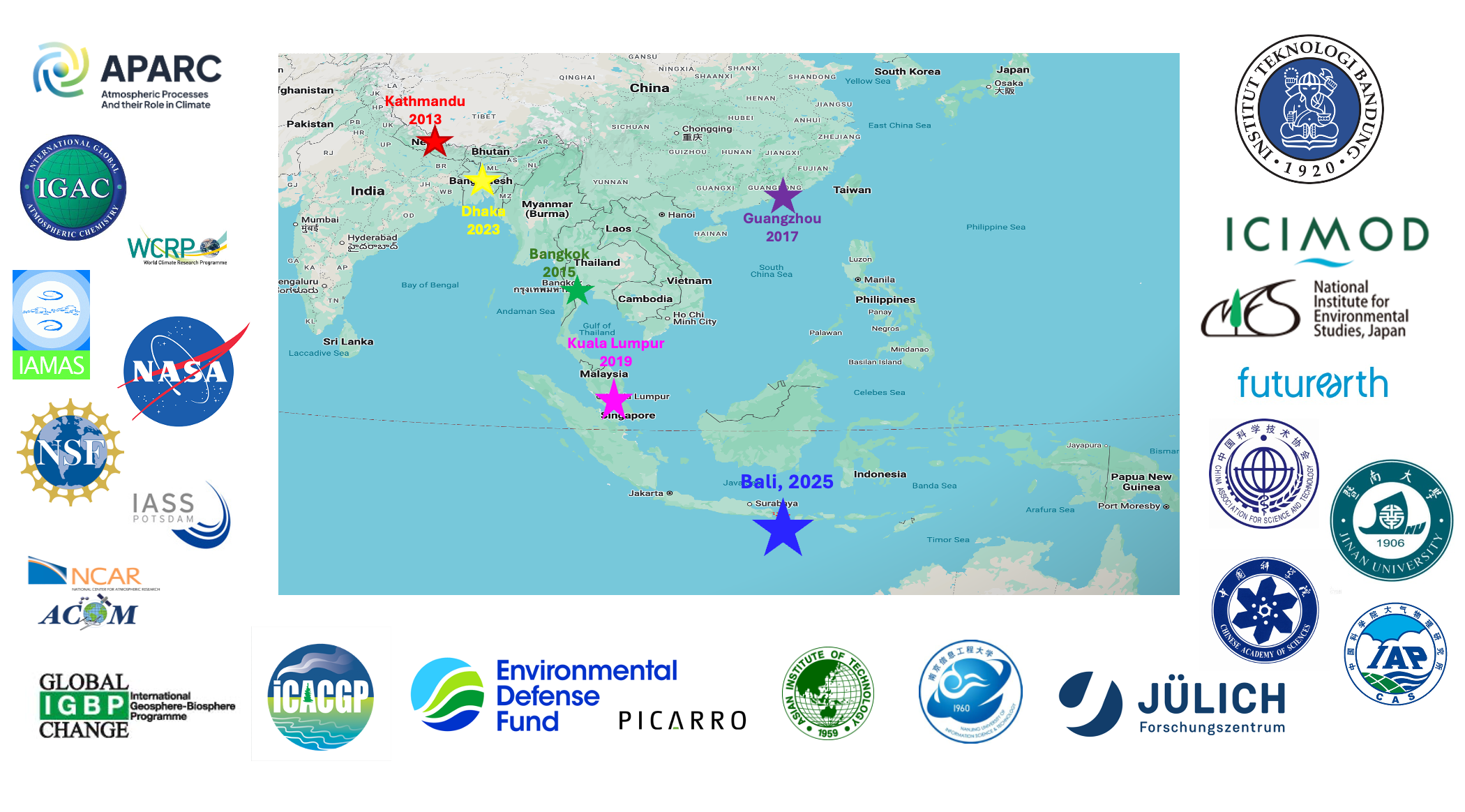ACAM 2025
6th International Workshop and Training School
Atmospheric Composition and the Asian Monsoon
Training School: June 9-10, 2025 Workshop: June 11-13, 2025
Bali, Indonesia

Deadline for abstract submission, training school, and travel support is March 7, 2025
- Cross-cutting ACAM-related science including aerosols/air quality, trace gas/greenhouse gas emissions, aerosol-monsoon interactions, chemistry-Earth system interactions, pollution transport to the upper troposphere/lower stratosphere (UTLS)
- Accomplishments of the ACAM community over the last decade and future outlook for ACAM
- Latest on state-of-the-art field measurements, modeling and satellite observations in the context of ACAM science
- Training School on satellite observations and modeling capabilities focused on enhancing capacity of early-career ACAM researchers
- Networking for monsoon Asia regional and international collaboration: challenges and opportunities
In June 2025, the ACAM community will gather in Bali, Indonesia for its 6th biennial workshop and training school. Since the first ACAM workshop in 2013 in Kathmandu, ACAM events have been held at locations across the Asian monsoon region, including Thailand, China, Malaysia, and Bangladesh. Over this period, ACAM has promoted close coordination across satellite observations, field campaigns, and modeling to better understand and characterize the interactions between atmospheric composition and the Asian monsoon. The couplings and feedbacks between emissions, pollution transport, and the Asian monsoon circulation span the region from the surface to the upper troposphere/lower stratosphere (UTLS). The breadth of these connections has attracted a community with equally broad expertise, and the resulting collaborations have been an important outcome of ACAM workshops. Collaborations within the ACAM community over the past decade have led to multiple synergistic activities across Asia in the form of intensive field campaigns, modeling activities, and coordinated synthesis of measurements towards an improved understanding of monsoon-related processes.
The 2025 ACAM workshop will once again provide a strong scientific forum for exchange on the latest research and activities related to aerosols and air quality, ambient air pollutant and greenhouse gas fluxes, chemistry-Earth system modeling, UTLS transport, and monsoon coupling processes. The upcoming ACAM event will also include specific sessions to reflect on the accomplishments of the ACAM community over the last decade, summarize what we have learned, and identify the key scientific challenges and opportunities that lie ahead. Integration of satellite data, burgeoning ground networks, models, and field observations has emerged as one of the key frameworks to study ACAM-relevant topics, which are expected to become even more important in future. Close collaborations have always been a central ACAM strength, and the 2025 workshop will strive to further strengthen and leverage the regional and international ACAM synergies. Finally, the 2025 ACAM training school will provide an excellent opportunity for early career researchers to directly interact with ACAM lecturers and trainers in a collegial setting to both learn ACAM-related fundamentals and experience practical sessions.